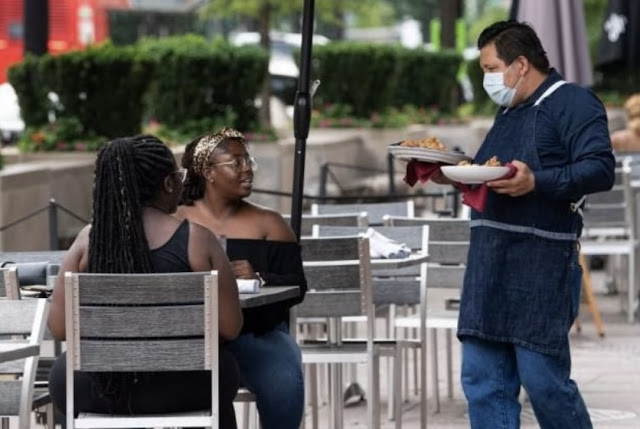"Four Days of Fever, Four Kilos Lost": COVID Survivors Share Their Stories of Sub-Variants
"Four Days of Fever, Four Kilos Lost": COVID Survivors Share Their Stories of Sub-Variants

"Four Days of Fever, Four Kilos Lost": COVID Survivors Share Their Stories of Sub-Variants
In the never-ending battle against COVID-19, new variants continue to emerge, keeping the world on edge. For three years, waves of variants, from Alpha to Delta, have come and gone, affecting countless lives. However, a new chapter has opened with the arrival of sub-variants, Eris and Pirola, both belonging to the Omicron family. These sub-variants have now taken center stage in France, and individuals like Eve, Hugo, and Pierre have harrowing tales to tell.
An Evolving Landscape
The exclusive club of COVID survivors is shrinking. Over the past three years, as variants swept through populations, some individuals appeared immune, seemingly unaffected by the virus while their loved ones fell ill.
Unpredictable Symptoms
Eris and Pirola may signal the virus's weakening, but the symptoms they induce are far from mild. Caution is necessary because the virus affects people differently, even those with no underlying risk factors.
Hugo, a 30-year-old nurse, can attest to this unpredictability. He recounts, "It hit me like a freight train! Four days of fever, shedding four kilograms, and I was confined to my couch, utterly drained. To top it off, I developed an ear infection! It took me by surprise," Hugo admits. "I had worked in a COVID ward for months during the height of the pandemic and hadn't contracted it. I'm young, not overweight, and have no respiratory distress. Yet, COVID knocked me out while people around me only had runny noses. It was a bit of a blow to my ego. I was off work for seven days, and it took another week to fully recover. At my workplace, it became a cluster – seven out of eight team members caught it one after the other within three weeks."
Vaccination Doesn't Guarantee Immunity
Pierre, with his three vaccine doses, believed he was invincible. He discarded masks, social distancing, and regular testing, thinking COVID was a thing of the past. But reality had other plans. "The fever struck during the night. I had chills, a pounding headache, and alternated between feeling hot and cold. Sleep was impossible. I initially thought it was a regular flu and visited the doctor the next day. It was he who suggested testing me," recalls the thirty-year-old. "When I got home, I slept from 2 PM to 11 PM non-stop. I was utterly exhausted! Four days later, my 16-month-old daughter contracted it. Her fever spiked to 40.5°C – she was burning up! Then, my wife got it too. Surprisingly, my 3-year-old son remained unscathed. The feeling of fatigue and weakness persisted for a week after recovery."
A Relentless Battle
Eve, 38 years old, had already been infected twice – once at the onset of the crisis when little was known about the virus, and again in the spring of 2022 while six months pregnant (and vaccinated). She thought she had seen the last of COVID. "My husband commutes between Marseille and Paris weekly for work, and he was the first to catch it. Shortly after, our one-year-old baby tested positive. It was her first childhood illness, with a fever of 40°C!" she recounts. "Then, it was my turn. I lost three kilograms in three days, bedridden and miserable. Our little one survived on milk bottles alone, not eating for ten days. As for us, we relied on pain relievers like Doliprane, but they offered only temporary relief. Fever would return within two hours, and it was excruciating! We remained positive for eight days, and everything seemed insurmountable, despite being typically energetic. Consequently, I booked an appointment to get vaccinated against the flu before winter."
In conclusion, the evolving landscape of COVID-19 continues to surprise us, with sub-variants like Eris and Pirola introducing new challenges. The virus remains unpredictable, impacting individuals differently, even those who have taken precautions or received multiple vaccine doses. As we navigate this ongoing pandemic, it's essential to stay informed, follow public health guidelines, and prioritize vaccination.
FAQs
Are Eris and Pirola more dangerous than previous COVID variants?
- It's still being studied, but they seem to cause different symptoms rather than being more dangerous.
Why did some people get COVID despite being vaccinated?
- Vaccination reduces the severity of the disease, but breakthrough cases can still occur due to waning immunity or exposure to new variants.
Should I get the flu vaccine alongside the COVID vaccine?
- Consult your healthcare provider, but it's generally recommended to protect against both infections.
Are children more susceptible to sub-variants like Eris and Pirola?
- Children can get infected, but the severity varies. It's crucial to follow vaccination recommendations for age groups.
How long does it take to recover from sub-variants like Eris and Pirola?
- Recovery times can vary, but it typically takes around one to two weeks to overcome the acute symptoms.





